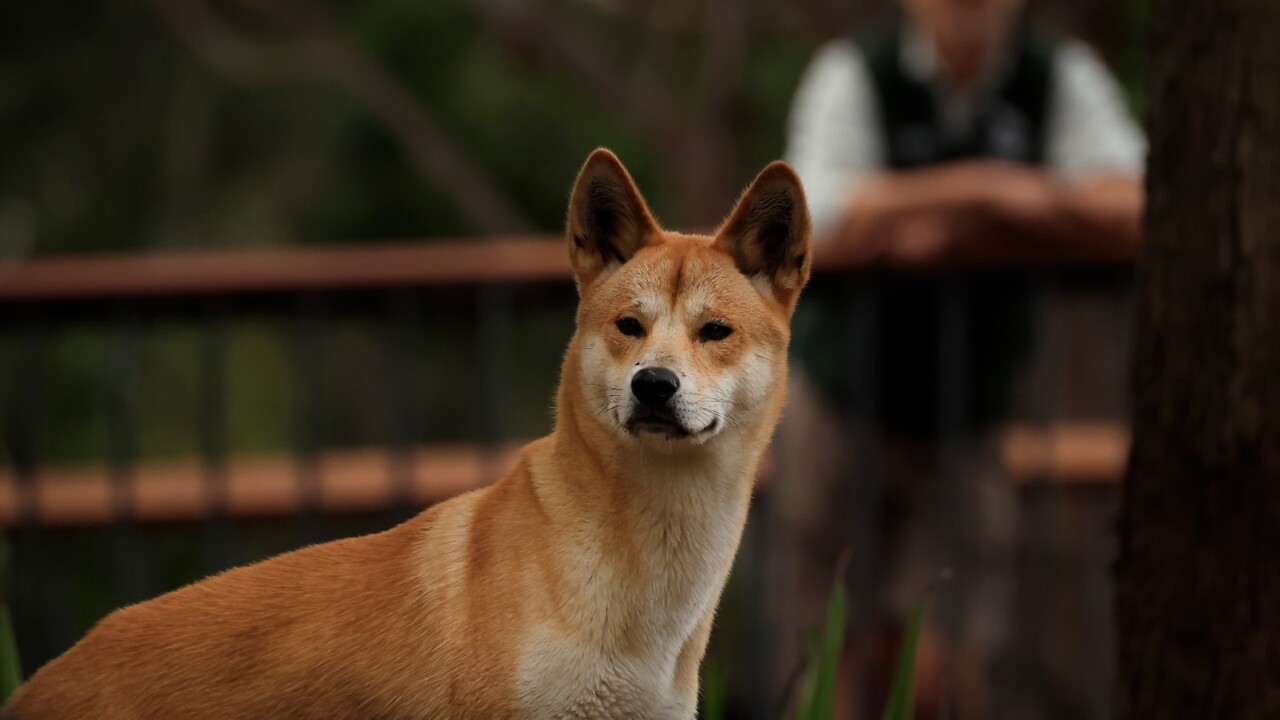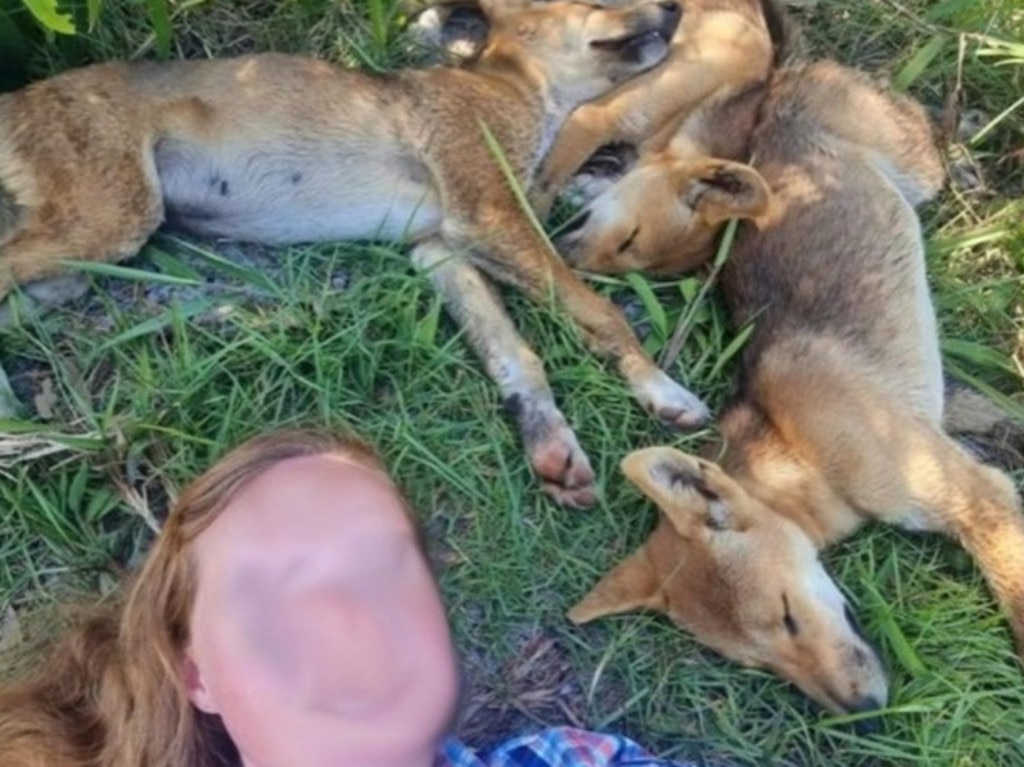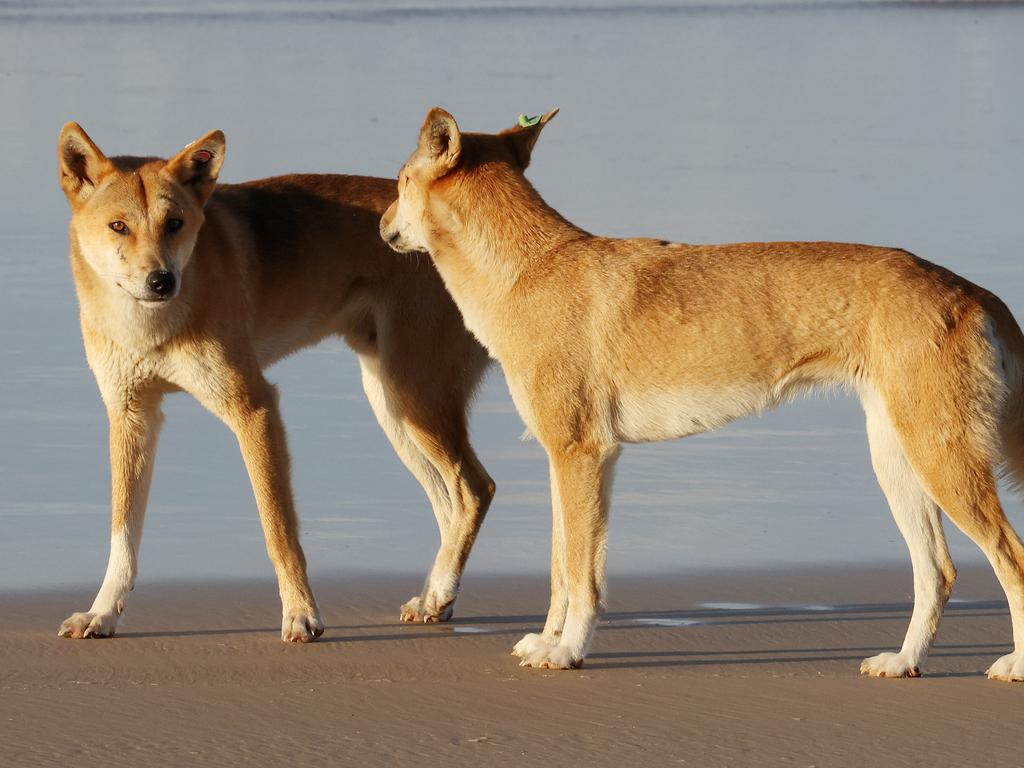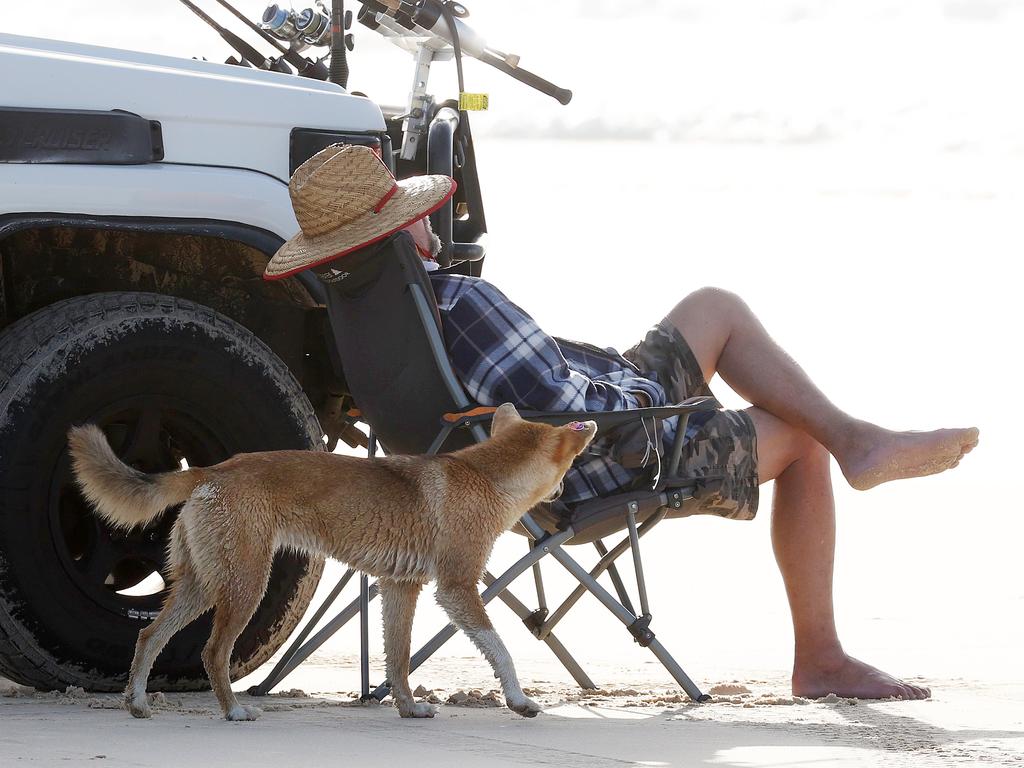Two women fined $2300 each for dingo selfies on K’gari
A woman who took a selfie of herself with relaxing dingo pups has been fined and lambasted for her “dangerous decision”.

Two women have been handed $2300 fines each after they took selfies with dingoes on the Queensland island of K’gari.
An official with the Queensland Parks and Wildlife Service (QPWS) said it was an “extremely dangerous decision” to interact with the wild animals, locally known as wongari.
The fines came after a women suffered injuries when she was attacked by a pack of dingoes while jogging on K’gari, formerly known as Fraser Island.
Wongari roam freely on K’gari.
The island provides all the sustenance they need. But those who have lost their trepidation around humans – usually because they have interacted with visitors – can become aggressive with the expectation they will receive food or to prove their dominance.

A 29-year-old New South Wales woman and a 25-year-old Queensland women both received fines from the state’s Department of Environment and science (DES) after they posted their dingo encounters on social media.
In one image, a woman can be seen lying in the grass taking a selfie with a pack of resting young wongari.
“Both women have made an extremely dangerous decision to interact with wongari and that’s why they have been fined,” QPWS compliance manager Mike Devery said.
“The NSW woman has recklessly chosen to approach very closely to three sleeping wongari pups.
“She was lucky the mother of the pups wasn’t nearby.”

“The Queensland woman could have been bitten by the wongari, which was clearly exhibiting dominance-testing behaviour,” Mr Devery added.
“It is not playful behaviour. Wongari are wild animals and need to be treated as such, and the woman is lucky the situation did not escalate.”
Dominance testing behaviour can include snarling and the bearing of teeth, the latter of which can be confused for yawning.
But the behaviour can also be more subtle. Dingoes with raised or curled tails can be a sign they are testing humans to see who is top dog.
Coming closer to humans and vocalising is also a warning.

In these circumstances, people should move away slowly to safety, such as to a car or fenced area, while maintaining eye contact with the animal. Running could provoke them.
That’s exactly what happened earlier this week when an unsuspecting jogger on K’gari was mauled.
In a statement, the DES stated it believed the animal “had lost its natural wariness of people” due to human behaviour.
The male dingo is understood to be one of four that attacked Brisbane woman Sarah Peet on the Island’s Orchid Beach on Monday morning, forcing her to run into the ocean, where a bystander was able to save her.
Ms Peet, 23, was left with serious injuries after being bitten 30 times.
The dingo was humanely destroyed.
“Euthanizing a high-risk dingo is always a last resort, and the tough decision by the QPWS was supported by the island’s traditional owners, the Butchulla people,” a spokesman said.
“The animal is around two-years-old, and when it was collared in April it weighed more than 17kg, which is heavy for a wongari (dingo) and a clear indication that it has been fed.
“It was also clear from its behaviour that it had become habituated, either by being fed or from people interacting with it for videos and selfies.

“The animal had lost its natural wariness of people, and entering campsites or loitering around people is not normal dingo behaviour.”
Not only was Ms Peet running, she was also alone. K’gari’s dingoes are warier when there are more people around or when people are walking in groups.
But sometimes even on a busy beach, wongari can attack.
A dingo was euthanized last month after it was filmed biting a tourist sunbathing with other tourist close by. It was the first dingo to be put down since 2019.






